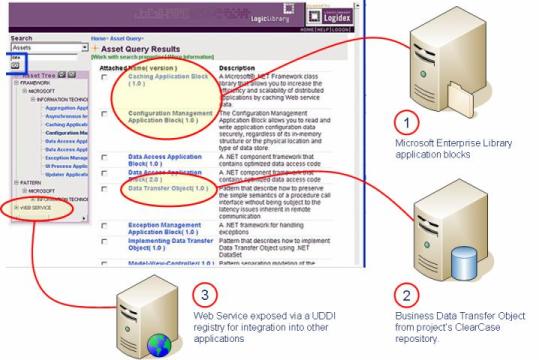The official press release just came out announcing that the Commonwealth of Pennsylvania will be using LogicLibrary’s Logidex product as its asset metadata repository. This is quite an exciting development since it will afford BSCoE the opportunity to automate many of the asset cataloging, management, and approval functions that would have otherwise been manual processes.
As a card holding member of the tool skeptics club, I admit to being plesantly surprised and impressed by all of the product demos that I’ve seen and the technical expertise displayed by LogicLibrary’s product technicians. Logidex has a number of extremely interesting features that I have seen in no other product, let alone product suite, including:
Visualization of the enterprise architectural layers with the Federal Enterprise Architecture (FEA) included out of the box and support for the integration of other popular models such as the Zachman framework. This allows users to navigate the layers of the enterprise architecture and examine the assets associated with each of the layers.
Cataloging the contents of multiple disparate version control systems and presenting them as a “virtual repository”. This repository includes UDDI discovery of Web services and baseline .NET and Java assets from Microsoft’s Enterprise Library and Sun’s core J2EE patterns, respectively.

Providing a configurable workflow for the review and approval of software assets as well as notifications to asset consumers of changes to existing assets.
Exposing core Logidex business services as Web services, lowering the barriers to integration with existing solutions, portals, etc. LogicLibrary eats their own dog food in this sense, by having their IDE plug-ins for Visual Studio and Eclipse consume these same Web services.
All in all, quite an interesting tool from some industry visionaries, including those responsible for IBM’s ill-fated San Francisco project. Like many large software packages, it’s hard to get a sense of how the software works since you can get trial software. Microsoft and LogicLibrary offer a limited trial version available. If you’re interested, I encourage you to check it out. Also, sharing of any experiences with this toolset, positive or otherwise, would be greatly appreciated.